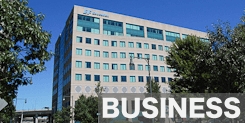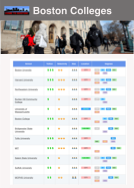The Questrom School of Business at Boston University (BU) is a well-regarded urban business school emphasizing cross-functional thinking, innovation, and real-world impact. It focuses on health and life sciences, digital technology, social enterprise, and sustainability. With over 2,200 undergraduates and 900+ MBA students, Questrom is known for its collaborative culture and Boston location, which supports networking in finance, tech, and consulting hubs.
Programs and Academics
| Program | Details |
| Undergraduate (BSBA) | Business courses start day one, requires one concentration (Finance, Marketing, Business Analytics). 98.2% of 2024 grads had business internships; 96.7% employed within 3 months. |
| Full-Time MBA | 10–16 months, customizable tracks in Social Impact, Health Sector, or Digital Technology. Affordable online option: $25,000 total, completable in 24 months. |
| Part-Time/Evening MBA | Ideal for working professionals; strong networking via alumni events. |
| Specialized Masters | Mathematical Finance, Management Studies, Business Analytics. |
| PhD | Research-focused, strengths in behavioral economics and markets/policy. |
Rankings and Recognition
| Source | Category | Position | Notes |
| U.S. News & World Report (2025) | Best Business Schools | #46 (tie) out of 133 | Up from previous year; assessed on peer reputation, recruiter feedback, and outcomes. |
| U.S. News & World Report (2025) | Part-Time MBA | #29 (tie) out of 239 | Strong for working professionals. |
| QS Global MBA Rankings (2026) | Full-Time MBA (U.S.) | #16 | Emphasizes employability and thought leadership. |
| Financial Times Global MBA (2025) | Global MBA | #74 | Up from #82 in 2024; highlights alumni career progression. |
| QS Global Masters (2025) | Master's in Business Analytics | #27 | Globally competitive for data-focused programs. |
| Poets&Quants (Undergrad, 2025) | Undergraduate Business | #15 | Praised for early business coursework starting freshman year. |
Pros and Cons from Reviews
| Pros |
|
| Cons |
|














































